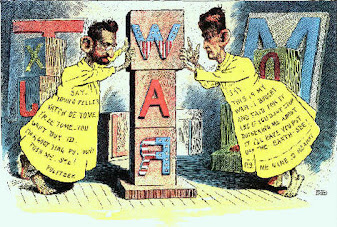Yellow Journalism and Muckracking
Yellow Journalism and Muckracking are two key ideas in the spread of journalistic ideas that many people view as controversial. But what is the difference between them? Or is there not a difference?
Yellow Journalism, by definition, is "journalism that is based upon sensationalism and crude exaggeration". To put things more simply, the modern comparison to yellow journalism is the idea of fake news and its affect on reliable news sources in today's media.
The idea of Yellow Journalism came about in the 19th century and, according to the Office of the Historian, "originated in the competition over the New York City Newspaper market between major newspaper publishers Joseph Pulitzer and William Randolph Hearst. At first, yellow journalism had nothing to do with reporting...". From there, the idea yellow journalism spread and became prominent through war reporting.
News outlets used sensationalism to spread facts, ideas, and events to attract the public more to the stories. This in turn, created bias, disinformation, and untrustworthy news sources. This is where muckraking comes into play.
What is muckraking? According to Dictionary.com, muckraking is "searching for and exposing real or alleged corruption, scandal, or the like, especially in politics". The idea of muckraking has become more and more prominent going on, whether they are exposing propaganda messages yellow journalism techniques, or fake news stories.
Popular muckrakers include Ida M. Tarbell, Upton Sinclair, Ida B. Wells, and many, many more. These people helped to expose some of the most prominent issues in American history, and were some of the first to be referenced as a muckraker in American journalism.
There is one thing, however, that yellow journalism and muckraking share in common: Investigative Journalism. People who were considered both yellow journalists and muckrakers were also coined as investigative journalists, even though their dispersion of information was different.
With yellow Journalism, the investigative journalists who find out information and use sensationalism to attract the public and interest them in the story. On the other hand, muckrakers would use investigative journalism to expose the truth, whether it is good or bad.







Comments
Post a Comment